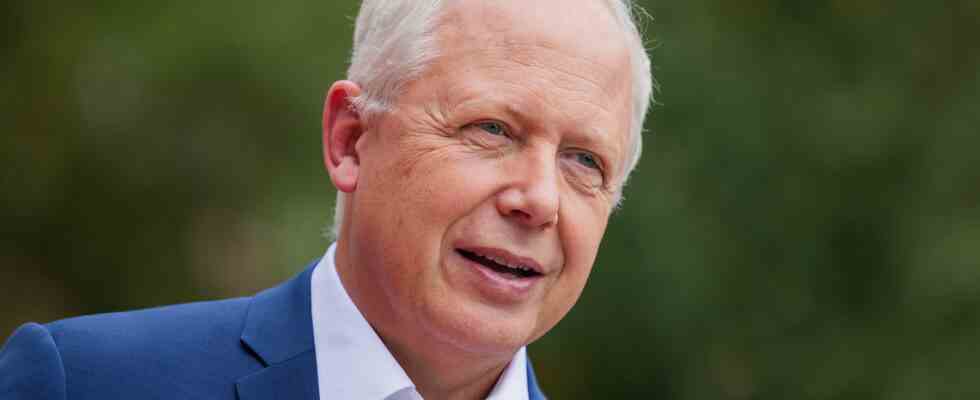Status: 03.11.2022 12:40 p.m
How much public broadcasting does Germany need? As an answer to this question, Tom Buhrow calls for fundamental reforms. The WDR director caused a stir with a speech that he expressly did not give in an official capacity.
The director of West German Broadcasting, Tom Buhrow, has spoken out in favor of a fundamental reform of public broadcasting. “My firm impression is that Germany doesn’t seem to want us to the same extent in ten years – nor to want to finance it as it does today,” said the 64-year-old at an event in Hamburg. The “Frankfurter Allgemeine Zeitung” published his speech.
Buhrow expressly did not give his speech in his official capacity as WDR director and current ARD chairman, but as a private person. Specifically, Buhrow suggested that the “system of the state chancellery here, broadcaster there” had to be broken out. This requires a round table to draw up “a new social contract”. There should be no taboos and no bans on thinking.
Buhrow also spoke of reliability and security for at least one generation. It takes a mental fresh start without the typical self-defense reflexes. With a view to The first and the ZDF said Buhrow:
The first question – I think – we have to ask ourselves is: Does Germany in the 21st century want to continue to have two nationwide, linear television channels in parallel? If not: what does that mean? Should one disappear completely and the other stay? Or should they merge and keep the best of both worlds?
Buhrow also raised the question of how many independent broadcasters should be part of the federal structure and diversity in Germany. “This will not be solved by broadcaster by broadcaster and state by state – but only in a larger context.” The question as to why ARD alone has 64 radio waves is justified. “We all keep saying the future is digital, but we all defend our linear channels.”
Buhrow also expressed doubts as to whether the number of orchestras, big bands and choirs was desired by the contributors or whether there should be a “best of” – the best symphony orchestra, the best choir, the best big band, the best radio house orchestra.
Gniffke: There is scope for bold reforms
SWR director Kai Gniffke, who will succeed Buhrow as ARD boss in 2023, said of Buhrow’s speech: “I take the text as an incentive to be courageous and to make public broadcasting future-proof. Buhrow is right to demand that Netflix and Co to stand up to it.” In order to have the resources for this, it is “right to rethink things that we have long considered untouchable, keywords radio waves, orchestras, production facilities or linear TV channels”.
At the same time, Gniffke expressed doubts about the idea of a round table. To do this, the responsibility for media policy must first be redefined: “It can take years. I don’t have that patience. My concern is that the enthusiasm for reform will flag during this time.” Gniffke called for “using the enthusiasm in the ARD to push bold reforms together with our supervisory boards. The future media state treaty gives the necessary scope for this.”
In his speech, Buhrow, director of the largest ARD broadcaster, once again took up his idea of a single large media library in public broadcasting in 2030, which he had expressed years ago. So far, ARD and ZDF have been working together in a more networked manner, but they continue to have independent media libraries.
Countries set the framework
The federal states are already reforming the mandate and structure of public service broadcasting, and the second step is to deal with financing. Households currently pay a monthly license fee of EUR 18.36.
In Germany, the federal states are responsible for media policy. They describe the mandate and structure of public service broadcasting in state treaties. It is not about the specific content of the program. The principle of remoteness from the state applies to journalistic content, broadcasters are guaranteed freedom of broadcasting by the Basic Law. Instead, the countries decide, for example, how many programs the broadcasters should offer or what the structure of the control bodies in the media houses should look like.
Austerity wave and a lot of criticism
In recent years, houses have already been encouraged to save, and many jobs have been cut. Pension entitlements are financially challenging for the houses.
There has also been repeated criticism of the broadcasters from politicians that they themselves do not initiate reforms decisively enough. The broadcasters, on the other hand, refer to the role of politics, which determines the scope of the broadcasters through state treaties.

